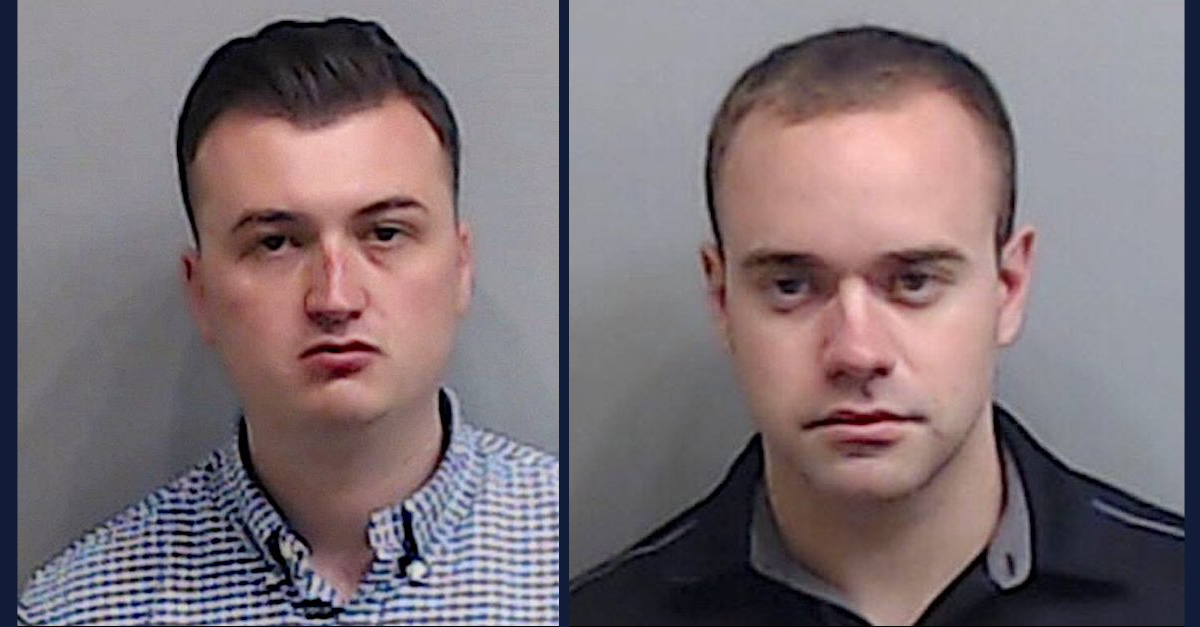
Devin Brosnan and Garrett Rolfe appear in 2020 law enforcement booking photos.
A special prosecutor will not move forward with criminal charges against two Atlanta police officers involved in the shooting and killing of Rayshard Brooks outside a South Atlanta Wendy’s restaurant in the summer of 2020.
Former Gwinnett County District Attorney Danny Porter said he “regretted” coming out of retirement to join Prosecuting Attorneys’ Council of Georgia Executive Director Pete Skandalakis in an official examination of the case.
While walking through the facts of the case in excruciating detail, Porter said previous assertions about what really happened when Brooks died were neither complete nor accurate.
“A different incident happened than has been released both by former prosecutors and by other sources,” Porter said while pointing to the available video.
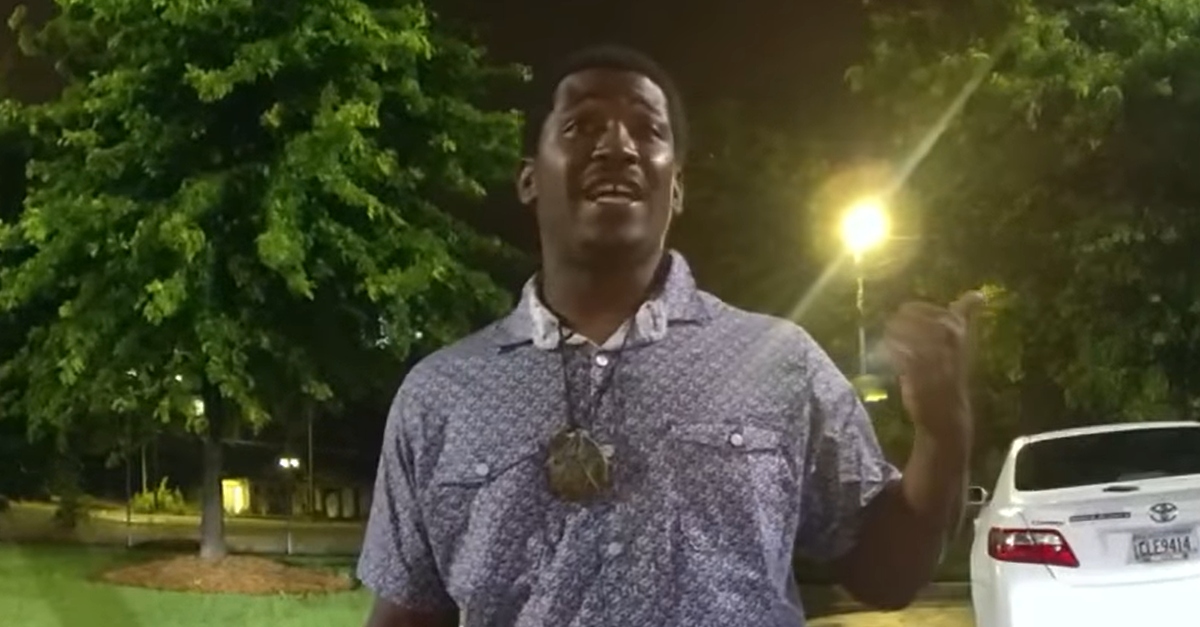
Rayshard Brooks. (Image via Atlanta Police Department body camera video.)
Porter added that videos do not “lie” but sometimes do not tell the whole truth. In this case, he said considerable expert analysis was necessary to stitch together all of the available versions of the incident to create as accurate a timeline as possible.
Officers Garrett Rolfe and Devin Brosnan were involved in a more than 40-minute conversation after Brooks reportedly “fell asleep” in his vehicle several times in and near the drive-thru lane of the burger-and-fries establishment, according to Skandalakis. Brooks blocked the ingress and egress of traffic; police were called; a discussion ensued.
Skandalakis said Brooks switched from “cordial” to “violent” during that fateful conversation when the police indicated they were aiming to arrest Brooks for driving under the influence. A field sobriety test with regards to Brooks registered a .108, several digits above the legal limit of .08, Skandalakis indicated during a Tuesday press conference.
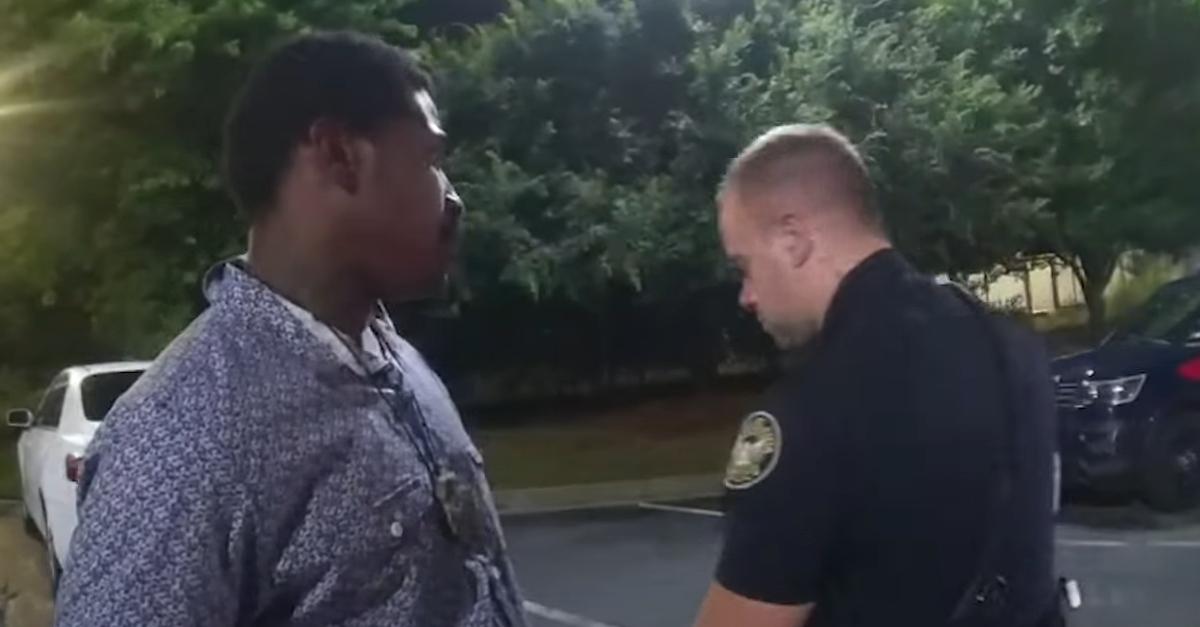
Rayshard Brooks and Garrett Rolfe. (Image via Atlanta Police Department body camera video.)
“Mr. Brooks lunges at both officers and basically overpowers the officers,” Skandalakis said. “He manages to take the taser away from one officer, tries to tase that officer two times, tries to tase the other officer another time, manages to take off running, and he’s pursued by Mr. Rolfe. He fires the taser back at Mr. Rolfe, and Officer Rolfe fires his weapon.”
During the altercation, Brooks managed “get out of being handcuffed,” put Brosnan on his back, and take control of Brosnan’s taser, the prosecutor continued.
Brooks at one point struck one of the officers, tried to “dry stun” Brosnan, and tried to fire the taser at Rolfe, according to Skandalakis.
Brosnan said he “felt the current going through his body,” the prosecutor continued.
Rolfe attempted to tase Brooks in return, but “taser leads do not connect to make a good current” because “one of them gets stuck in his clothing,” Skandalakis indicated.
As Rolfe chased Brooks, Brooks turned and “fired a taser more than once” at Rolfe. “During one of the times, when Brooks is turning and firing, that is when Rolfe switches from his taser” to his weapon and “fires three shots within .56 seconds.”
The results were fatal.
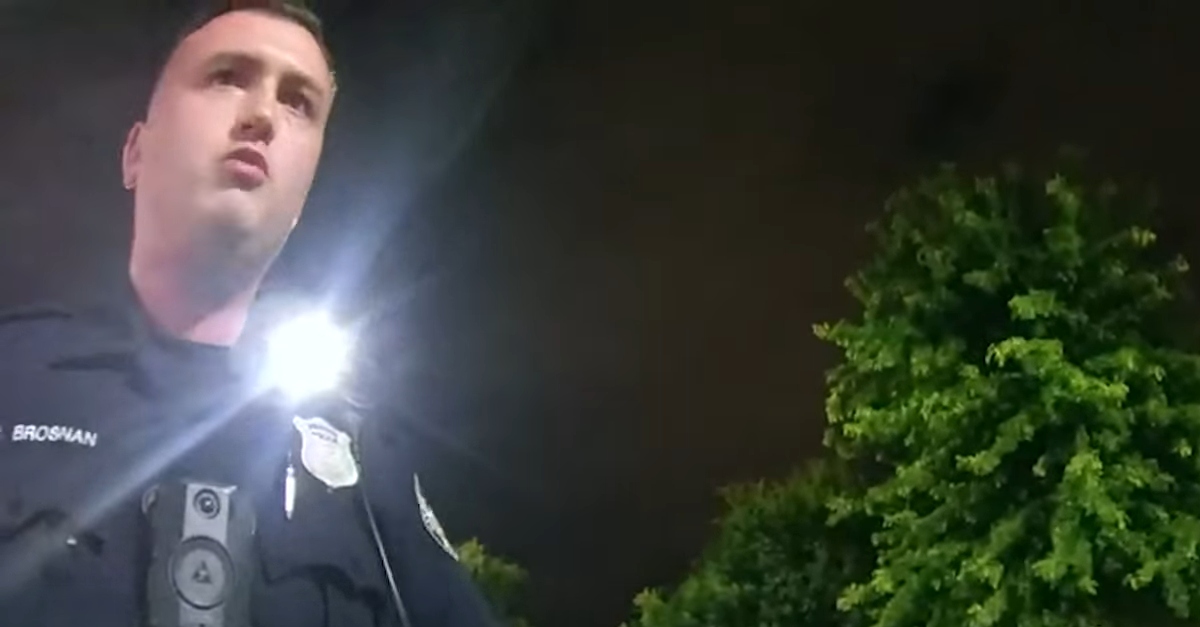
Devin Brosnan. (Image via an Atlanta Police Department body camera video.)
Skandalakis said Tuesday that his job was to do what was “right.”
Among the evidence he examined was video of the shooting; he said he conducted a “frame by frame analysis” of the recording.
“I think it’s important because we have to remember what mood our country was in in 2020 when this happened,” Skandalakis said while referencing the murder of George Floyd Jr. on May 25, 2020 and the killing of Breonna Taylor on March 13, 2020.
Skandalakis said the Brooks case was “distinct” and “different” from the cases of Floyd, Taylor, and Ahmaud Arbery. Arbery was murdered on February 23, 2020.
Brooks was shot and killed on June 12, 2020 in the midst of social unrest connected to the aforementioned killings of Black people at the hands of police officers or law-enforcement-adjacent individuals (in the case of Arbery).
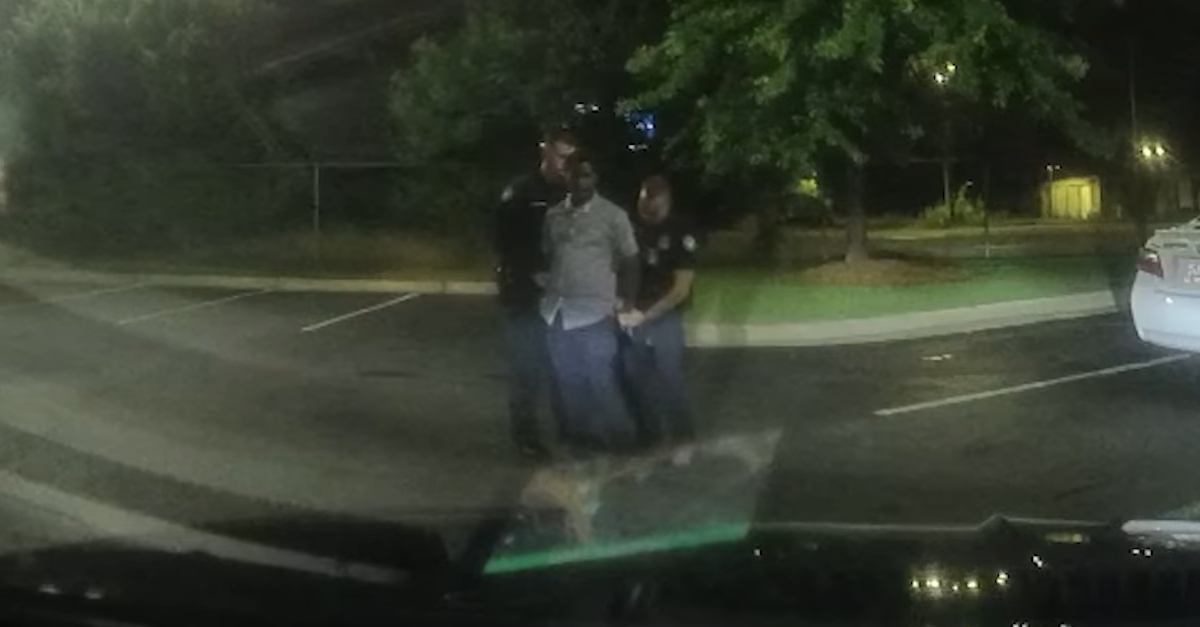
A video screengrab shows the beginning of the so-called “violent” encounter between Rayshard Brooks and officers Rolfe and Brosnan.
Skandalakis quoted the following passage penned by the 11th Circuit Court of Appeals to support his decision to decline to prosecute the two men in uniform:
In making an excessive force inquiry, we are not to view the matter as judges from the comfort and safety of our chambers, fearful of nothing more threatening than the occasional paper cut as we read a cold record accounting of what turned out to be the facts. We must see the situation through the eyes of the officer on the scene who is hampered by incomplete information and forced to make a split-second decision between action and inaction in circumstances where inaction could prove fatal.
The special prosecutor characterized Brooks as “a person with an offensive position” — one who could be “deadly” — once he took the taser.
“Here we had a peaceful encounter that all of a sudden becomes a violent encounter . . . and it is quickly changing and it is quickly dynamic,” Skandalakis said.
A full report was promised for the public.
Rolfe was booked on eleven counts back in June 2020, according to jail records Law&Crime reviewed at the time. Those counts included one count of aggravated assault, four counts of aggravated assault with with a deadly weapon, one count of criminal damage to property in the first degree, one count of felony murder, and four counts of violation of an oath by a public officer.
Rolfe’s attorneys quickly lambasted District Attorney Paul L. Howard Jr. for filing the charges — allegedly without a full review of the available evidence.
Brosnan was similarly charged but with fewer alleged offenses. The accusations against him included aggravated assault and two counts of violating his oath of office.
Brosnan’s attorney appeared on television in defense of his client and implored prosecutors to examine the videos of the incident.
Howard’s lengthy tenure in office came to an abrupt end when Fani Willis beat him in a subsequent election.
Willis disqualified herself from examining the Brooks shooting, and the state attorney general asked Skandalakis and Porter to take over, Atlanta ABC affiliate WSB reported.
Rolfe was fired from the police force. However, he was reinstated when a city civil service board ascertained that officials rushed through the process of firing him without giving him an adequate chance to defend his actions.
Have a tip we should know? [email protected]